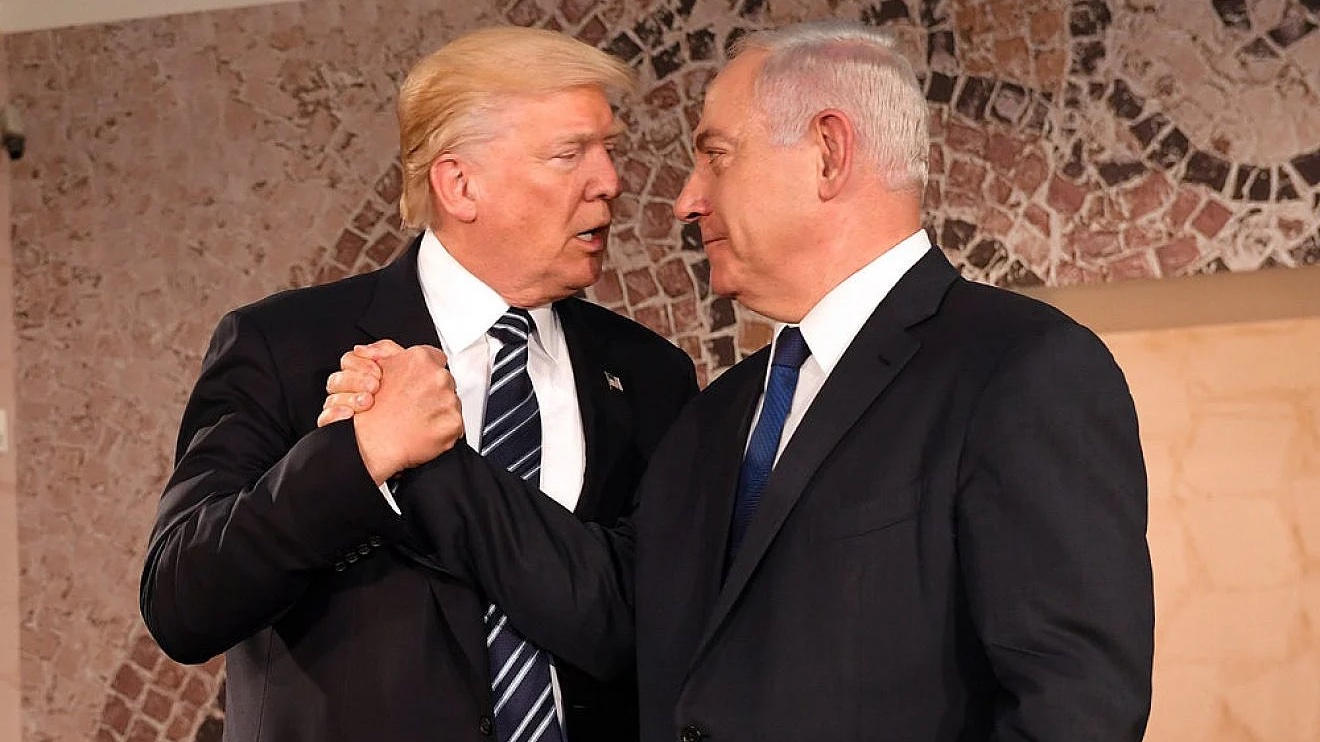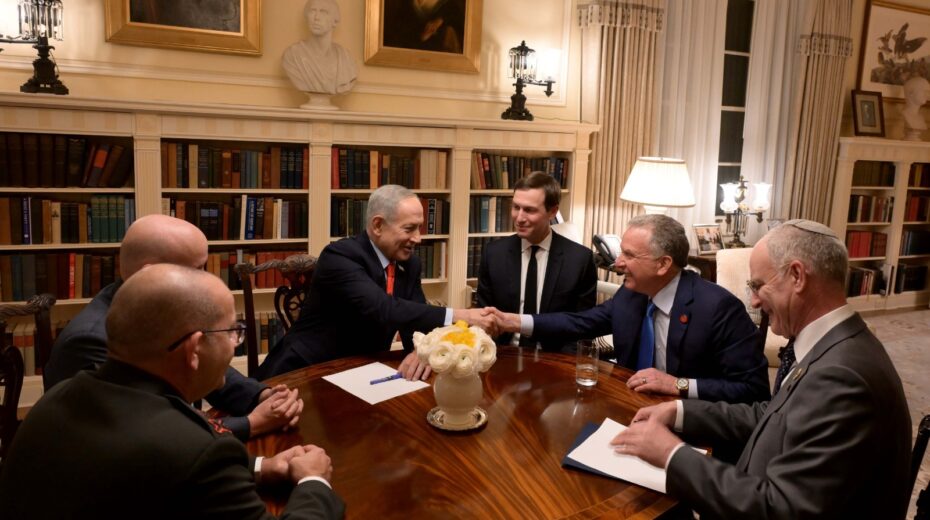(JNS) As Israeli and Hamas delegations head to Egypt to negotiate the details of a sweeping US-led plan to end the two-year war, Hamas faces a stark choice: accept a deal that would begin with the near-immediate release of all Israeli hostages and culminate in its eventual disarmament, or face the alternative—a renewed, full-scale Israeli military campaign aimed at forcibly removing it from power in Gaza.
The 20-point plan, unveiled by US President Donald Trump on Sept. 29, has drawn broad international and regional support—including from the Arab-Muslim world and Hamas’s own patrons, Qatar and Turkey—placing the terror group under mounting pressure.
Brig. Gen. (res.) Yossi Kuperwasser, director of the Jerusalem Institute for Strategy and Security (JISS) and former head of the IDF Military Intelligence Directorate’s Analysis and Production Division, said during a Sunday call organized by the Jerusalem Press Club that the first test of the plan will come in the context of the hostages.
“Is Hamas going to release all of them in the time frame decided upon, or not? This will give us a sign of the extent the supporters of Hamas are keen in putting pressure on Hamas to make sure that it is coming up with the implementation of the plan,” said Kuperwasser.
“I think that Hamas understands that if they are not going to deliver, the alternative is what was just about to happen: Israel is going to get a green light from President Trump to finish the job, as he was describing it, and get Hamas out of power in Gaza by force. And this alternative is not very attractive for Hamas,” he added.
Kuperwasser assessed that Hamas has the capability to locate and release all 48 remaining hostages—20 living and 28 bodies—within a few days. The plan itself, he stressed, is not open for negotiation. “The plan is the plan. You either approve it or disapprove it,” he said, noting that it is supported by many Arab and Muslim states.
While Hamas would secure the release of hundreds of high-level terrorist prisoners, accepting the deal would amount to admitting that the Oct. 7 massacre was a catastrophic mistake for which it has paid a heavy price, he argued.
“Giving up control of Gaza is a huge loss for Hamas, and the disarming of Hamas is a major setback,” Kuperwasser noted.
The plan is performance-based, not timetable-based, said Kuperwasser. All of its clauses following the hostage release—including the establishment of a Palestinian technocratic government, the deployment of an International Stabilization Force (ISF), and a massive reconstruction and economic program for Gaza—are contingent on Hamas verifiably disarming.
Israel, he added, will in any case retain security control over the Gaza perimeter and the Philadelphi Corridor—separating Gaza from Egypt—to prevent the Strip from being rearmed. Kuperwasser said regional powers including Qatar, Turkey, and Egypt are exerting intense pressure on Hamas to accept the deal, both to “save Hamas” from annihilation by the IDF and to advance their own interests with the United States.
Asked by JNS what interests Qatar and Turkey have in publicly endorsing the plan, Kuperwasser said, “What worries the Qataris was that Israel was getting closer and closer to removing Hamas from power by force. The military move that Israel carried out was a major incentive for everybody to hurry up and convince Hamas to accept the deal. Because what we were going to see just in the coming weeks was that Hamas would be removed from power by force.
“And this would mean that many more buildings in Gaza City are going to be destroyed and the damage to the Palestinians and to the Palestinian infrastructure is going to be much more immense than it is already. And we have to remember, until now we did very limited damage to the areas at the heart of Gaza City. So, when they saw the buildings, the high-rise buildings in Gaza, falling apart, that clarified to them what’s going to happen and why it’s necessary to move fast and make Israel stop before everything turns into rubble.”
Regarding Turkey, he added, Ankara has regional ambitions to become a hegemonic power in the Middle East, supported by a strong military and Qatar’s financial backing.
“They believe that this axis of the Muslim Brotherhood can gain more power. When Hamas is under pressure, it’s not good for the axis of the Muslim Brotherhood, and that’s why they try to save Hamas. They understand that, in order to save Hamas, they have to support the deal,” said Kuperwasser.
“On top of that, both Qatar and Turkey are very close to the United States. They need American support, and the Turks are, of course, expecting to get the F-35 from the United States and other benefits. They are also suffering some sort of economic crisis, so they need American support. Trump is more than ready to help, provided the Turks supply something in return,” he added.
Col. (res.) Moshe Elad, one of the founders of security coordination between the IDF and the Palestinian Authority and a lecturer at Western Galilee College in Acre, warned that Hamas is likely setting a “trap” for Israel and the United States, and that its apparent acceptance of the deal is a deceptive maneuver.
“It is clear that if Hamas is willing to release the hostages for only terrorists in return, it is in trouble. It has run out of ‘ammunition,’ and therefore I am doubtful this will work,” Elad told JNS.
He pointed out that Hamas has already publicly rejected core, non-negotiable tenets of the plan. “They have already announced, for example, that Hamas does not agree to demilitarization and the expulsion of its operatives, and that they want to participate in the future control of the Strip—three points out of 20 that are an explicit rejection of the agreement’s clauses,” he stated.
See related: Trump’s deadlines keep expiring—and so does US deterrence
In an interview with Maariv, Elad elaborated that Hamas is trying to create the impression of flexibility while fundamentally refusing to concede on the issues that matter most: its weapons and its power. He argued that the terror group’s goal is to draw Israel into a process that ends the war on Hamas’s terms, allowing it to survive and rebuild, thereby claiming a historic victory. Elad cautioned that Israel and its allies should not fall for this ruse, as Hamas’s ideology and long-term goals remain unchanged.
“It seems that President Trump has not yet internalized that in the Middle East, every agreement, every idea, and every negotiation has the character of a Turkish bazaar. What happened during the 48 hours from the time the plan was made public and until Hamas’s ‘agreement,’ is that big words met a complex reality,” he said.
Want more news from Israel?
Click Here to sign up for our FREE daily email updates














